or, a higher love
From the top of the sky to the bottom of the ocean, the balance bears their leitmotif. The clearest waves and their subtle compounding. A glistening star evoking a radiance you willingly dismiss. Azure immanence reigns true.
A room bathed in a soft, satin darkness. The setting sky painting the windows in hues of indigo and turquoise. The surfaces reflect the remnants of light left from the pale sun. Even the darkest of nights stay blue.
If the colors were ordained by God, heaven, too, might appeal to our meek understanding of the infinite. An ultramarine kingdom makes for an interesting visual, doesn’t it? Man was born in God’s likeness after all.
Yet, should we heed the parlance of our age, the pearly white blessed kingdom of God holds a contrast from the common sights of man. The structure of our environments dictate everything; and after all, you and I aren’t Gods.
The mortal subjects in a world of infinitude. For all of the depth and brilliance of the sky and sea, we still wake in the morning. Your day to day activities consist of whatever you want it to be, but under my milquetoast scrutiny, it seems most people partake in education, employment or training. Alas, you could state anything simply enough for a schedule; what a life!
A “life” is only described by the sensations of which we could never truly know, and finds its definition between the limiting factors of the words plainly written.
Limits of the surface of my skin that allow me to sense pain and pleasure.
Limits of my growth. Limits of my energy. Limits of my strength. The limits of my love.
The first truth is a limit. Children only understand their place in the world when their adolescent egoism is confronted with an immovable object. To go so far to prove to themselves that they are something special—a heroic child rather than the fragile and silly one they might truly be! Popping bubbles is the purest delight.
These limits; these singularities, enable the person you and I are today. Self-consciousness, if nothing else, is an awareness of the finite. Of the difference between you and the infinite expanse of the sky. Life is a limit. Death, the finality of being dispersed, vaporized, is an inescapable return to the limitless.
And perchance, it’s a bit too nihilistic to think about… Equating life to its inevitable end is a confrontation less groups decide is worth the energy, and I feel as if I’m all too close to the void for just thinking about it.
But isn’t value found in scarcity? I mean, life could not have the same level of importance if we were allotted all of the time in the universe.
Everything would be there already, frozen in an undifferentiated, infinite, and eternal space.
Bonnet, F. J. (2020). After Death. MIT Press.
The most sensible thing in the world, I think, is to forego and forget about the blood that runs in your veins.
What value does a cake have if its delicate sweetness cannot grace lips, if you can’t keep the treasure intact to savor twice?
There has to be something more.
A will to power, A will to live, the indomitable human spirit, the blessed kingdom of god, any and all; We live with harshened breaths for the eventual cure to death’s sickness.
When faced with the immortal, we cannot help but bathe in its saccharine pleasantries. Mortality no longer holds its meaning to a romanticist.
Love is best served with a cup of coffee.
My shoulder brushed the window; it’s surface a breath of ice.
The distance between me and her became zero, melting away all that remained.
Her embrace—a glowing hearth, warm and alive.
The rain whispered its soft song upon the glass, but through it, her voice broke through.
“I love you.”
Amor De Verão
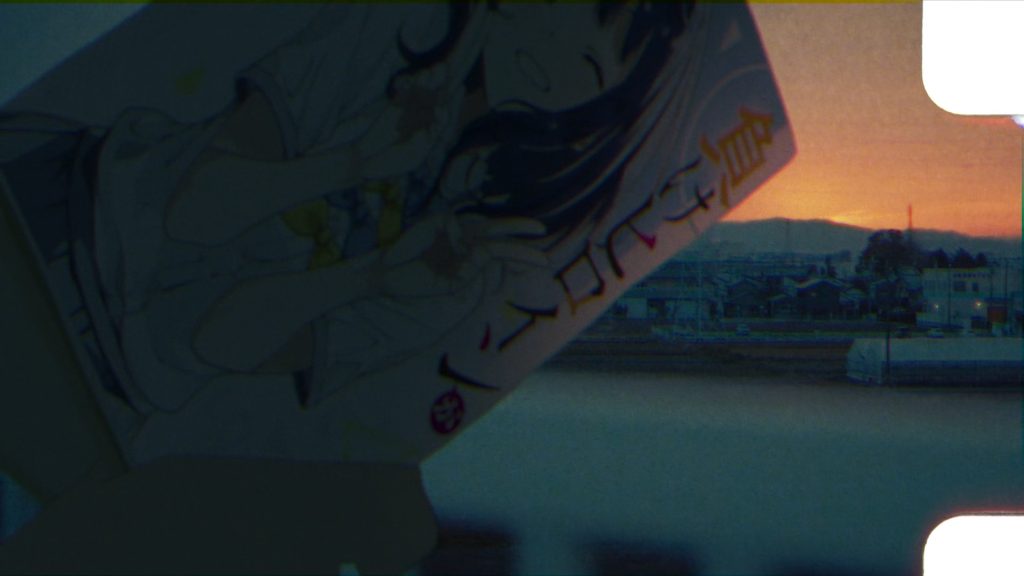
Romance, a topic adored by all. The single most unifying force in any given situation. A talk on the street with a funnily dressed passenger. An older woman at the counter of a retail store. Waiting in line next to someone unoccupied. Everyone here, regardless of experience, has a dialogue on romance.
“Love is a compromise.”
“Love is finding who you want to spend the good and bad with.”
“What kind of fuckass question is that? Leave me alone.”
The billboards of New York promote diamond rings, a symbol of love of course, a showcase of how little money means to you in the face of pleasing your beloved other. The best sellers in bookstores, stories of people leading mundane lives and finding their golden boy, or perhaps a bit of a ‘NEW!’ twist to the same formula.
Ubiquitously, romance’s subject remains protected by sweethearts and darlings.
Empty parking complexes and concrete sickness. Couples meandering in sync, unoccupied hands gently cradling the shaft of Cupid’s arrow. Fumes of nauseatingly pink vapor sticks to my sinuses.
This city is too jazzy not to be in love.
~not an angel, nor a dreamer~
The scent of virginity stains my grunge anime girl t-shirts. A 20-something year old man eating alone, avoiding the waitress’s gaze, seems unbecoming of someone in a loving relationship.
But one way or another, ‘it’ will always catch up to me. For instance, the paragraph above exudes an ideology on romance. The mentioning of virginity as a lack of experience for an object I am physically and physiologically given. The discretion taken when met with a woman by my lonesome, an acceptance of the other as a hidden participant in the repetition of love. Or, by happenstance, a conditioning set by run-ins with the authorities of romantique.
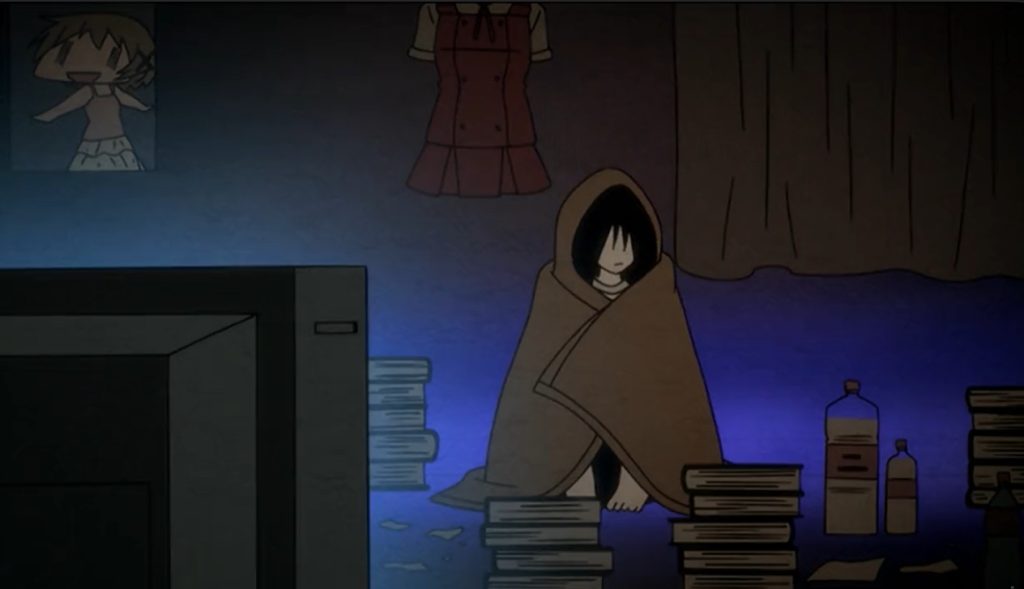
I’m an incel, because becoming a “volcel” first requires the dialogue option “I love you” to have appeared at least once during the common route. Perhaps it’s my own purist romantic ideals surfacing—plainly, I’ve never even been in a position to turn down sex, let alone dated anyone.
There is comfort in disavowing natalism. So I don’t really care. But if that truly were the case, then I would have had to be lacking in nothing; The topic of romance would have never entered my personal domain.
Before my not-so-serious-but-actually-serious-performative-rejection-of-3DPDs, I had a clear interest in the fairer sex.
The “girls I used to fall in love with” were the first girls that would come to my mind if my father or mother asked if I had anyone I liked. The people themselves, half of which I couldn’t even remember, were active members in the religion I used to serve in. (usually girls who were more than twice my age.)
The only recounts of love that I was familiar with were the relationships of my mother and father, the shows that aired on TV, and the stories told in the bible.
Thus, Romance was something to be celebrated with open arms. A beautiful story of two star crossed lovers working out their differences making peace with their inner demons to find the soft inscription “love” written in a time capsule for the next generation. Isaac and Rebekah were rewarded by God for his undying faith for he and his beloved to bear kin.
Just like the positive ‘life affirming’ gaze of popular culture, Love too, is an affirmation that nurtures us and gives us something to believe in during the darkest hour.
Though, for better or for worse, I have built up the habit to never speak on my feelings, or even the positively dismissive ‘crushes’ I once told my family about. Perhaps, I have never felt the ephemeral touch of the fairy tale-esque ‘‘true love’.
This would continue to be a trend throughout all of my formative years. Find someone I deem adequate to bear my facetious feelings towards, talk about it to arouse excitement from my peers, listen to their own romance-inclined hearts and sit in my comfortable seat giving them basic advice like a 30-year old wizard.
Love, as understood through my actions, is a chase. The desire is never the quality you chase, it will and will always be the desire itself that you cherish with all your heart.
Dismissive of the qualities of learning about a partner’s deepest secrets, losing the intent to break a person down and examine their pieces, to know everything there is to know. Forgetting about the compromises of romance, the goal of a ‘forever love’. To reduce the nuance of complex human relationships to the very sensations it brought, sensations never clearly defined.
I, too, have worked within the railings of romance all this time.
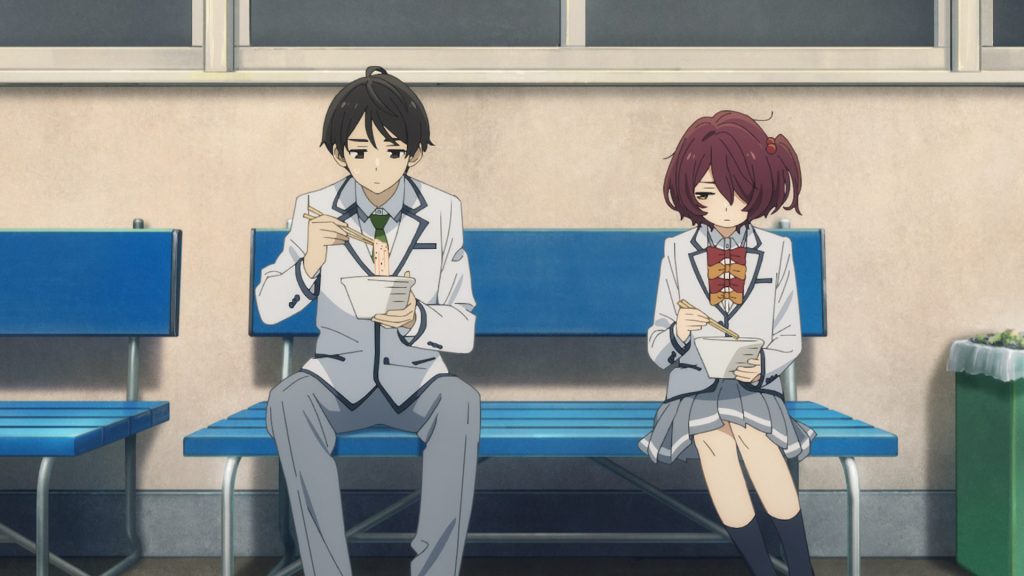
relative relation (it’s all about)
Makoto Shinkai, a name that is hard to miss, is the director of the most popular romance works produced by modern day Japan. The director of your name. And to some really stupid people, the Miyazaki of the modern age.
To note my stance, I think his films are rather plain and predictable. The romantic aspects of his films are only carried by the ufotable-esque flashing colors and inadvertently pretty cinematography. To which, I am not the most accustomed because of my own preferences in sugar.
I like a drama that deals in the gritty, a real pessimistic Greek tragedy. But he has totally found his own niche and wider audiences can attune themselves to his directions. Even the most boorish films contain peculiar singularities.
Likely, the most striking aspect of his work is his reliance on aesthetics and environments to shape the eternal story of romance. The latest of his works shine with his peculiar eccentricities, with a heavy focus on the infinite natural world and the radiant horizons you might aim to catch with the apparatus of a lens.
He seeks to capture every beam of light, every interesting geometrical shape and leading lines in ordinary spaces, and especially, in what I could only describe as a detonation of the finite, subjective self.
Through the perspective of a career and future portfolio, his earliest works were a showcasing of his insights on film and the raw technical skill he has in creating a short animated film all by his lonesome. To which, the animation is breathtaking. But within this artistic vision, a sedentary action sprung forth.
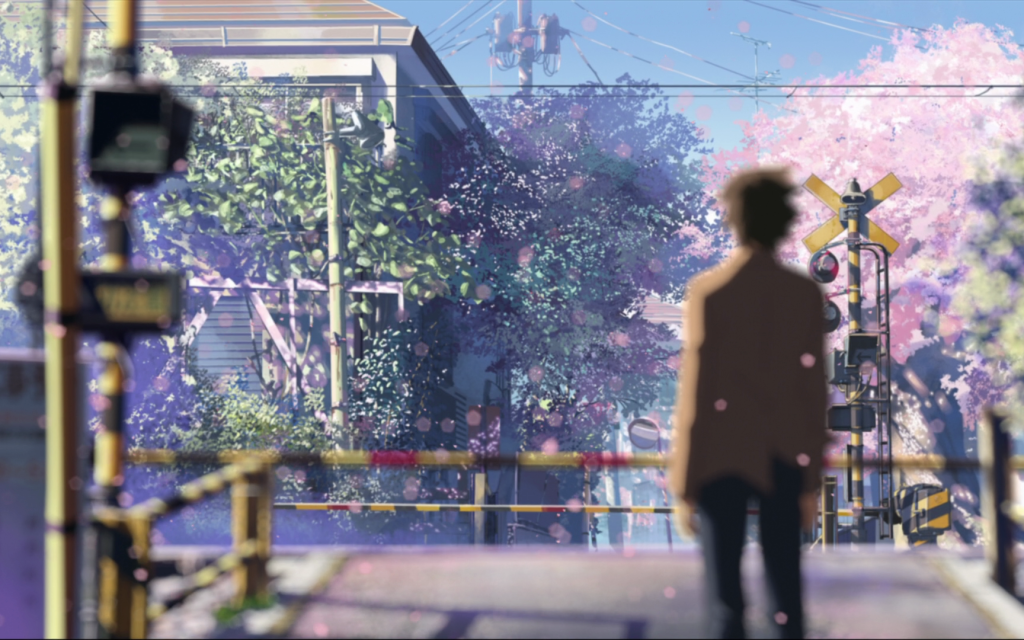
For instance, examine this simple shot from his film 5 Centimeters Per Second (or any of his samey films for that matter!).
A shot from the most impactful scene in the film, the sands of time have eroded the last bit of hope our protagonist had. The cherry blossoms were left to fall without company.
But what, aside from the beauty in Shinkai’s photography, could this image hide? What implications could aesthetics for aesthetics sake hold? I ask you to forget about the narratives presented in the image and the extra lying context the of anime, and tell me what you see.
The birds are chirping, the sun is shining. Trees and cherry blossoms bloom through the mechanical constructions of man, perennial weeds. The blue sky, its lack of depth, its incessant constant. And finally, the obscured immaterial industrial signifiers framing the lack of another’s presence.
And here, in the roaring tides of mawkish mass produced limits of love, Makoto Shinkai reveals the first of the thoroughgoing ailments in “a romance.”
Perhaps, my conception of the natural world is one of a proper modernist. But I believe it is inevitable when viewed through the lens of romantic narratives.
What could have driven the main character to bypass all of his royalties, to forget about the people in his life, to chase after the fleeting romance of Middle School’s daydream? It is irrational, precisely. But what compels a young boy to wish for love eternal?
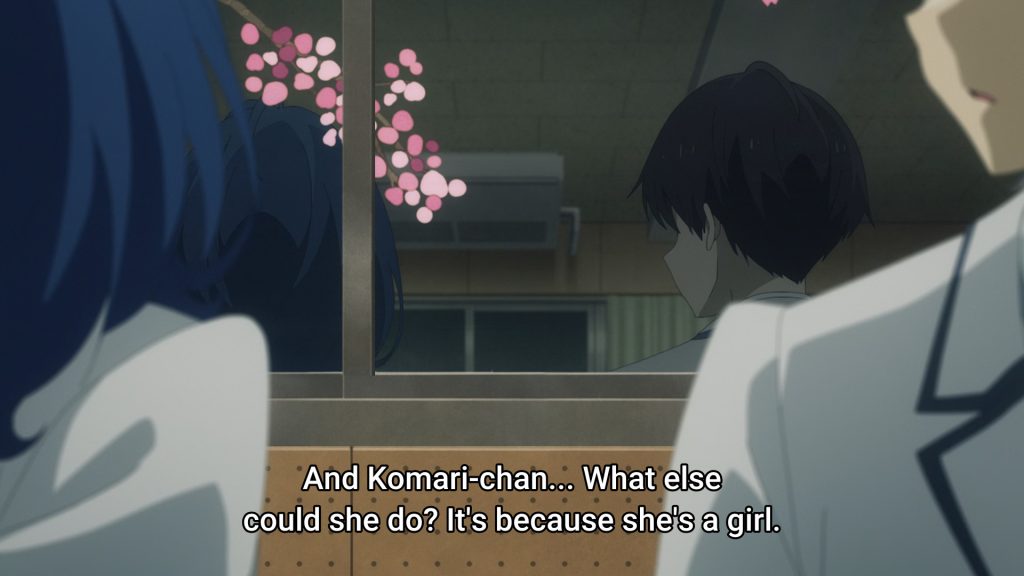
Because it is described as an immortal factor that transcends the physical realm. An idealist situation where the echoes of your history, if successful, produce fruitful bearings for those yet to come. Through the stories of your romance, the romance of great men, and wholesome keepsakes you might leave in a closet. The cultural epoch has reached a point where love is not merely an aspect of situation and circumstance, but is the dominant force in determining a section of your whole life. Art and music has presented its bliss with a motto, in so far as folding into itself, that it remains an eternal, deterritorialized aphorism hellbent on the formation of unknowable sensations. Your love has existed before you have and it can be said that you existed for that love.
The profundity of calling back to the utterly mundane nature, is a grasping for an actualizing force that places you into the world, inseminating the ‘once was here’ into the infinite. A desire to hide away from the only guarantee a scientifically proven life could have ever had.
If life is to be described through its limits and our awareness of ‘things beyond language’, then love details a phenomena that buckles the subjective praxis in and out of congruence with those limits.
Love is immortality.
Of my darling—my darling—my life and my bride,
In her sepulchre there by the sea—
In her tomb by the sounding sea.
Poe, Edgar Allan (1849) Annabel Lee
do insects fall in love?
Plainly speaking, I believe that Love is a topic or idea that is obfuscated, barred into concepts of pathic understanding.
Even without a clear definition, love’s discourse functions on a common notion of the sensations in which love arises, but,
In order to not appear as though I am writing about Pinterest tier deductions that romcom expectations might cause to arise, I will attempt to describe what love is to me:
Love and romance, to me, are actions based in repetition. The repeated messaging, the constant (just like the sky) meetings, the actions that exude the very essence of attachment and codependency (because kissing is too embarrassing(⁄ ⁄•⁄ω⁄•⁄ ⁄)⁄ . The expectation that he will bring you flowers during valentine and that you may give him chocolates on White Day.
Hell, all relationships, to include those of enemies, are centered on repetition.
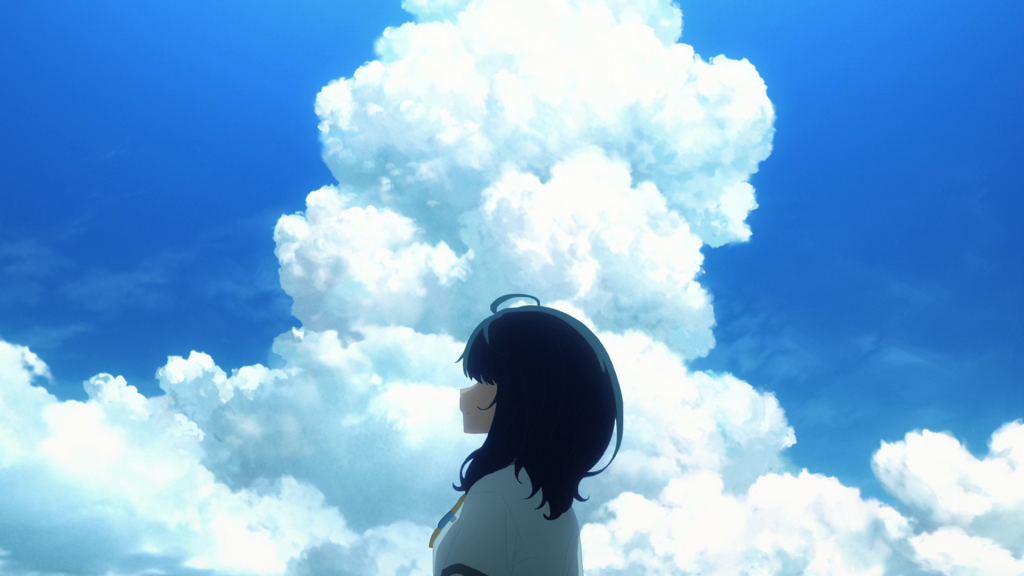
Love’s main mode of expression is through a showcase of emotions and actions that signify that you truly feel the same way, but it is just as performative as it is intrinsically heartfelt. The ontological question, “What is love?” demands an answer that could be merely concluded by subjective notions on its sensations, but these answers could never truly be felt. Thus, we turn to elicit eye movements, ritualistic eros, and diamond rings to give tangible to the unknown.
Personally, and I think I could speak for many, one of the barriers to romance is knowing when it has reached a moment of clarity, past libido and mere interest, and has bridged the gap in becoming something worth fighting for. Problems might arise from other social factors like fear and rationality, but of course, love, I think, should surmount all of these factors to for a faithful freedom. A true purpose to act, if you will.
It is in my own best interest not to impose a finality where romance is prescribed, but perhaps it is that leap of faith between both parties where a romance is met.
Then, if love is acted on through leaps of faith, what drives love? Like food, like shelter, why does love persist as a nexus of the human condition?
Its logic could be found in multiple layers of all the romance.
Take a look at the beginning act of the titular A-1 Picture production of 2024, Too Many Losing Heroines!
towards an ideology of a losing heroine

As a series and a concept, it immediately prostrates itself in service of the relationship we have with anime romance and subsequently romance itself for a metatextual layer for further self-analysis. A story about someone who helps others get over their first loves, loves of which are the kinds of stories you’d have first hand accounts of in other works. But the protagonist somehow creates another self-insert you’d see from the epoch of the 2010s’ romcom? But the side characters are more lively and approachable while also already encompassing the pastiche of incel-oriented riajuu? So in a way, it’s a redefinition that treads the same ground with the only difference being the relationship we, as viewers, have with the wishful prophecies? Utterly fascinating and coherently ideological!
But the romances themselves hold the raw natalist seriousness you’d find in a random western feature film, and more importantly in otaku oriented romances. In the first chapter of the book, and the first episode of the anime, Yanagi Anna deals with the heartbreaking realization between her osananajimi and dear friend. He is in love with another girl!
After the sarcastically directed scene, she accompanies the main character and talks about her love life. Holding the self importance of a love stricken damsel, the comedy ensues when she speaks on a childhood promise of yesteryear.
“He said I would be his bride when we were in elementary.”
And with her own self-imposed altruism, she allowed her hubby to escape to his new honey.
A first love is a magical thing, probably. Was it love at first sight or should I walk past again? As children, we cling to ideas like leeches, needing hemoglobin to sustain our existence. The stressors fire off when something no longer emphasizes the individualisms of our life.
Or, perhaps I should let the woman speak for herself.
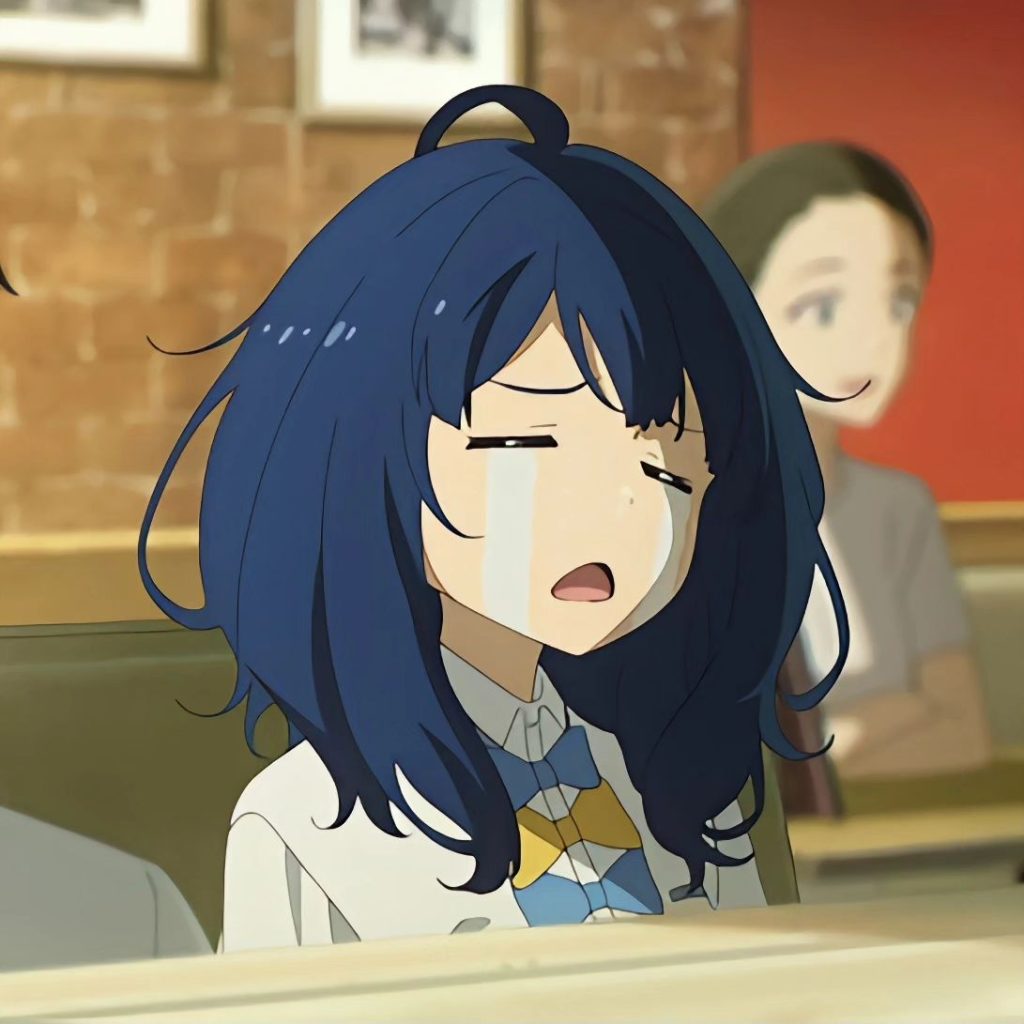
“It’s not like I have anyone to look good for anymore.”
She would no longer have that person to call her own, that person that she could exclaim is her lover, a person she could think about when she daydreams and spend time sprucing up to make herself prettier for him. Yanami Anna seemed to lose an aspect of her self.
Because, love is centered in egoism, a mutual codependency that requires the other party to reciprocate your existence. She shows you who you are through difference. A relationship that is built on repetition with the other, both fulfilling the desire to submit to another’s will, willingly. But is not just a form of narcissistic egoism nor is it a simple transcendence into the infinite world. It is somewhere in between the idea and if it were so sinister, it would be denounced like the taste of tobacco.
Fixed identities and otherwise, are the central component in a life, if no foundations were laid, nothing could stand to remain if slighted by hindrances. Who could bear to wake if the sky no longer held in immanence, if the floor’s horizon blurred into obscurity, if every possible difference would leave into nothingness. It would spell D-E-A-T-H.
We need love, but you already knew that.
je t’aime ★ je t’aime
The capsule sways soft as a cradle, rocking us beneath a setting sun.
Warm air clings to our skin, dusk in every touch.
You turn towards the window, your gaze slipping past mine.
Between heaven and earth, I wish we could transcend time.

The human limits,
the infinity of nature,
enveloping sweetness all encompassing,
an unknowable sensation beyond words,
a leap of faith,
desire, necessity, existence
The fear of (not) being dead.
Perhaps, death is a reductive concept, perhaps the state of unbeing transforms you into a state beyond gray matter and beyond flesh. The text of the dead borrows your lips when read. It is unknowable, it is fearful, it is cowardly, it is the ultimate.
Thus, the whole work of man is wrought in tensions of mortality. Bear children, for your will eventually die. Work to sustain against the reaper. Partake in all that is good, for your legacy will never be forgotten.
Death is the absolute, but it cannot be known. Even the very act of dying will leave others with memories of their lives, resurrecting them in a physical sense. The constitutions of its opposite leave no answers, the hard sciences can quantify when a ‘soul’ might pass, but if resuscitated, were you ever really dead? Can the experience of nothing be explained in words, could it be understood in art?
Romantic paintings of a death, experiences had, friends and family looking on as the reaper takes charge. A calm and collected Anubis and the trumpets call to the abyss, they ultimately depict much of the same. This magical realm contains no more secrets.
The seeping of death’s muted truth wills itself into every life affirming capability, especially in acts of love. Ironically, dissipating itself into the wild, performing suicide.
Online profiles, health technology, detachment from natural scarcity, digital permanence, the digitalization of funerals, a never ending flow of content, timelessness.
Death no longer has a personality, all signs are a-signifying. Skulls and bones are pirates and science. Age is maturity. Death is not a concern until its sickness rips the warmth from your body.
Love holds to itself just as much permeance as death. It was the first obstacle to death, the first action to force one to live. Obfuscating the ticking clock and the dying cells, it ironically harkens to the truth more than any funeral ever could.
If death is a return to the infinite, if the idealist world holds up, if death truly is no consequence to love, then death is immortality.
To love, is to constantly be reminded of one’s death, to live with in knowing that you may pass before he/she does. To make a natural statement against mortality,
by subverting its gaze in hopes that it finally minds its business. To live against the clock, to ‘spend time’. To know, for absolute certainty, that you are limited. Things beyond words are not constrained by the physical life. The limit does not exist.
Can you remember death?
Do you remember love?

Love is the first truth and the final answer and I fucking love shy, one-eye covered, literature-club attending social anxiety-ridden gremlin-voiced needy, cute girls with all of my heart.


Leave a Reply